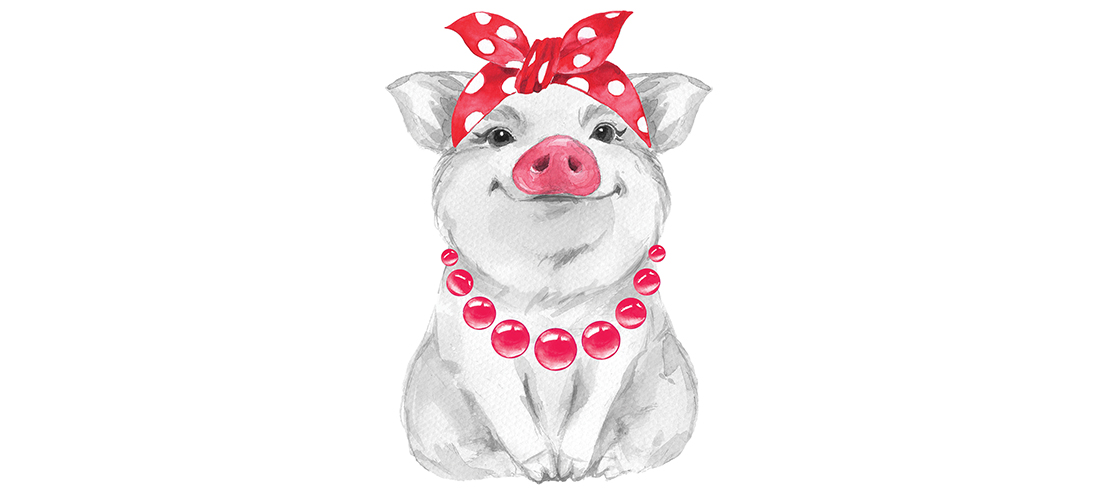Strings Attached
Adrian Varnam of Ronald Sachs Violins wants to place the perfect instrument in your hands
By Dana Sachs
Adrian Varnam
How long have you been in Wilmington?
I was born and raised here.
What were you doing before you opened this violin shop?
I owned a bar downtown, which is not conducive to a normal lifestyle. You’re working late hours and standing up all the time, dealing with people not always at their best. It was time for a career change. I remember having a moment when I was behind the bar and thinking, “What am I contributing to society? What am I giving back? How am I making a difference?” I didn’t feel fulfilled in that and this definitely is fulfilling.
What do you love about it?
I really enjoy putting instruments in young musicians’ hands. I was that kid who started at age 5 with violin and did the whole thing, progressed through high school. That was a major part of my life, so it’s nice to come back and see that journey from a different perspective.
What’s it like in the shop on a typical afternoon?
We’ll have a young person looking for strings, or a parent looking to start their kid in lessons. An adult looking for a new instrument to play, or a first instrument to play. A musician who needs a repair. We have the contract for New Hanover County Schools, so we do their rentals and repairs for the orchestras. We do the same thing for all of southeastern North Carolina and into neighboring counties of South Carolina. We have hundreds of instruments and we get new ones every year, because there’s always an influx of new sixth-graders.
How much does a stringed instrument cost?
You can buy a really crappy violin on Amazon for $125 — factory-made in China — and it’s going to be more trouble than it’s worth. And then, up to six figures. I have violins here right now that are $5,000 to $10,000 each. At our shop in Atlanta, we’ve got many, many more, up to $15,000 or $20,000. Some, even $100,000.
And if someone decides to rent?
It’s $19 a month for a violin, $23 for a viola, $40 for a cello, and $70 for a bass.
What if students’ families can’t afford to rent?
There are usually instruments at school, but unfortunately, these instruments were bought a long time ago and they’ve been used. Middle school kids are not the best stewards of stringed instruments, or any instrument. A lot of them are in bad shape and there’s not tons of money to replace the fleet. But we have scholarship instruments, too, that we give away to programs. And we have a couple of people that sponsor students. They’ll pay the monthly rental for a student to help support him or her.
Do you see a lot of talent here?
Oh, absolutely. We’ve got a really big program in New Hanover County. Every middle school has an orchestra and the four traditional high schools have orchestras. We’ve got a lot of private schools and private teachers, so it’s not just the public schools. Cape Fear Community College. UNCW. We have great teachers here. I would say we are comparable to any county in the state in terms of talent.
How has the craft of making stringed instruments changed over the years?
It’s a very intricate and specialized skill. There are fine makers that produce great instruments that sound just as good as ancient instruments. Of course, technology helps. It helps to make things a little better, but the actual design has not gotten better since Stradivarius perfected the instrument around 1700. Nothing’s gotten better since then. String technology has changed. Bows — they’re now making carbon-fiber bows. But the actual violin is still spruce and maple put together perfectly with the right glues and varnishes.
What makes a great violin?
A great violin projects. It’s balanced. The high end is as good as the lower end. It’s not tinny. It’s not muffled. It has a very pure sound.
How do you react when you hear that kind of sound?
I’ve heard and played so many bad instruments over my career that when I’ve heard a decent one, I’m like, “Oh! That’s different.” Because I’m in the business, I’m looking for the problems. I’m playing an instrument going, “OK. What’s not good about it?” And when I’m having a hard time picking out the bad things about an instrument, that means it’s good, that it’s appealing. And you can find a great instrument that sounds terrific for $500 to $1,000. It doesn’t have to be a million dollar instrument.
Do you see a resurgence of interest in classical music?
What I see is a resurgence in interest in folk music and fiddle music. You go to Satellite Bar on a Sunday night and the old-time music is very popular. More and more young people are learning to fiddle along with classical, Irish fiddle music, traditional fiddle music and Bluegrass.
So, young people aren’t really drawn to classical music?
When I say “classical,” I mean traditional ways of learning how to play an instrument. You have to learn the basics, and often that literature is classical music. But kids in middle school aren’t just playing Mozart. They’re playing pop music, and arrangements from movies and TV and video games. It keeps them interested. There is more of a disconnect with classical music now with [young people] than there used to be. You go to the symphony, and everyone’s old. You don’t see a lot of really fired-up 20-somethings at classical concerts, but you do see them at the Bluegrass jam.
Do fine instruments increase in value over time?
It’s just like art. When the economy is in the toilet and people don’t have extra money, they cut back on extravagant purchases. So the value of those instruments is dependent on the economy. But they certainly haven’t depreciated. There are fine instruments, especially from the 1800s, that have a value of 20 to 50 thousand dollars. They’re always going to be in that range.
Do people ask questions about their own violins?
Yes. We are stringed- instrument experts, and so every week I’ve got someone who’s calling and saying, “I have this instrument. It was my mom’s.” Or, “It was my grandfather’s. It was in the attic. Is it worth anything? Can I fix it? What should I do with it?” That’s a service that we provide, too. There are so many instruments lying around that are family heirlooms or they bought it from a flea market. Those calls are plentiful.
So, what do I do with my violin from fourth grade?
You can certainly bring it in. We can talk about it.
Dana Sachs’ latest novel, The Secret of the Nightingale Palace, is available at bookstores, online and throughout Wilmington.


